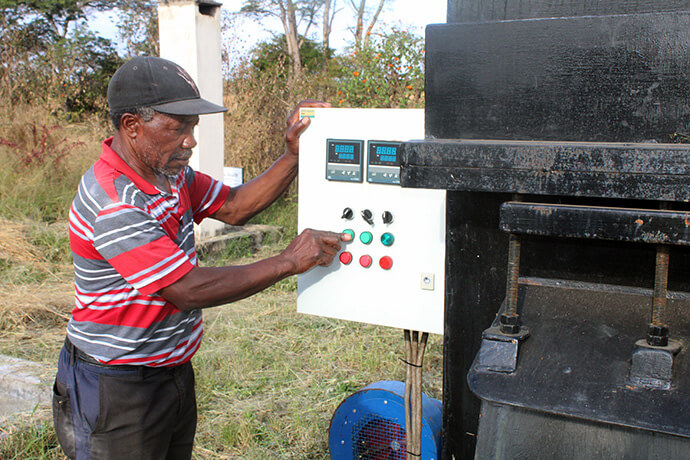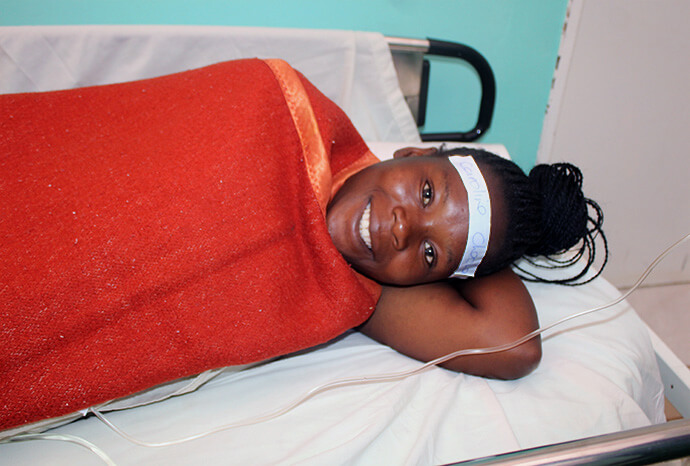Key points:
- The United Methodist Board of Global Ministries continues to transform lives in Zimbabwe, bringing critical improvements to Old Mutare and Nyadire mission hospitals.
- With modern surgical theaters, upgraded kitchen equipment, an advanced incinerator system and enhanced water reticulation, the hospitals are now better equipped to provide high-quality health care.
- The upgrades reduce the need for patients to travel long distances to urban centers for specialized care.
The United Methodist Board of Global Ministries continues to transform lives in Zimbabwe, bringing critical improvements to Old Mutare and Nyadire mission hospitals.
With modern surgical theaters, upgraded kitchen equipment, an advanced incinerator system and enhanced water reticulation, the hospitals are now better equipped to provide high-quality health care.
Bishop Gift Machinga, who oversees The United Methodist Church in Zimbabwe, Malawi and Botswana, emphasized that the ongoing partnership with Global Ministries continues to be a vital catalyst for transformation in the country’s health sector.
“By upgrading these mission hospitals, the partnership bridges a crucial gap between urban and rural health care services, strengthening local capacity to respond to both routine and emergency medical needs, reducing the need for patients to travel long distances to urban centers for specialized care,” he said.
Machinga remarked that the partnership is more than a donor-recipient relationship; it is a shared commitment to health, dignity and life.
“It exemplifies how faith-based collaboration can serve as a cornerstone for national health development,” he said.

Dr. Walter Mutindori, the Zimbabwe East Conference health secretary, said that Global Ministries’ donations of a new surgical theater and renovating an old theater and labor ward will directly improve the hospitals’ capacity, quality, access and effectiveness by bringing specialized and critical services. However, he emphasized the remaining need for surgical packs and additional beds at Old Mutare Hospital, as well as staff housing to address human resource shortages.
“My wish is for these hospitals to become self-sustaining, generating enough revenue for expansion and improved service delivery,” he said.
Dr. Evans Matiki, Old Mutare Mission Hospital health superintendent, praised Global Ministries. He said their previous delivery ward only had two beds, which could not meet demand.
“Previously, due to overcrowding, some mothers had to deliver on the floor — but that is now a thing of the past,” he said. “Thanks to GBGM, we have four beds, ensuring mothers give birth in a safe setting.”
Matiki added that the renovations also have strengthened infection control, making it possible to retain more specialized doctors for surgical procedures beyond maternity care.

Caroline Checha, a patient from Zengeni Village in Penhalonga, expressed her joy upon returning for a surgical procedure.
“I was first operated in 2017 when I gave birth to twins,” she said. “Today, I am back, and the transformation is incredible. The renovated theater is beautiful and modern. I’m very happy.”
After undergoing a caesarean section, Aisha Saidi reflected on her decision to give birth at the mission hospital.
“I chose to deliver here because of the excellent facilities and the fact that it is a church-run institution. The treatment is exceptional,” she said.
Monica Nzirayabani, Old Mutare Hospital administrator, said that recent repairs to the hospital’s two 33,000-gallon water tanks have significantly improved availability of potable water and the facility’s environment, including being able to grow more vegetables on the grounds, thereby reducing hospital food costs.
“The horticulture gardens that support the hospital and mothers’ shelter are flourishing, contributing to a balanced nutritional diet and dietary diversity for patients and staff,” she said.

The improvements Global Ministries provided at Nyadire Mission Hospital include a new operating theater, kitchen renovation and new, contemporary incinerator.
Dr. Ursula Norah Nyamandi, a government medical officer at the hospital, praised the construction of an additional theater, which significantly expands the facility’s capacity.
“Having only one theater restricted our ability to perform surgeries beyond maternity care,” she said. “Now … we will be able to accommodate multiple surgical procedures in various wards and invite more specialists to assist.”
She also emphasized the role of the new incinerator in improving hygiene and infection control, as proper waste disposal helps prevent the spread of disease.
Despite these advancements, there are still ongoing challenges, such as Zimbabwe’s frequent power outages impacting the hospital’s ability to store critical drugs and blood supplies. She stressed the need for solar-powered backup systems to ensure continuous operation and prevent breaks in the cold chain to safeguard medical supplies.
Subscribe to our
e-newsletter
“The lack of refrigeration for blood storage forces patients needing transfusions to wait for the hospital to travel 168 miles to Harare, adding an unnecessary burden,” Nyamandi said.
One of the patients affected by this issue is 87-year-old John Gwata, who was admitted to Nyadire on May 14 with an anemic condition. The unavailability of blood for transfusion has prolonged his stay.
“I do not know when I will be discharged,” he said.
Lorraine Muzambi, the hospital’s primary care nurse, explained that as an alternative, Gwata is receiving ferrous and folic acid tablets to help stabilize his condition, but this treatment takes significantly longer.
“This means Gwata will require additional care to protect him from infections, but with improved energy solutions, hospitals like Nyadire could provide timely and effective treatments easing the burden on both patients and medical staff,” she said.
Power outages also affected the hospital’s kitchen, which used electric stoves. The only alternative was the use of a firewood stove, which was not environmentally friendly due to deforestation. Global Ministries’ renovation provided a gas stove, an urn for boiling water, three tables, a kitchen unit and a plate rack.
“These upgrades have improved efficiency, ensuring we can prepare meals more reliably for patients and staff using environmentally friendly facilities,” said Winnet Nyamuda, a cook at the hospital.
Mutindori said that Global Ministries has played a pivotal role in putting both hospitals on a path toward greater sustainability.
“Its assistance has not only upgraded facilities but also strengthened health care delivery and patient experiences,” he said. “The support has sparked hope among health care workers, patients and the wider community, demonstrating that external partnerships can revitalize essential services.”
Chingwe is a communicator for the Zimbabwe East Conference.
News media contact: Julie Dwyer at newsdesk@umnews.org. To read more United Methodist news, subscribe to the free Daily or Weekly Digests.




